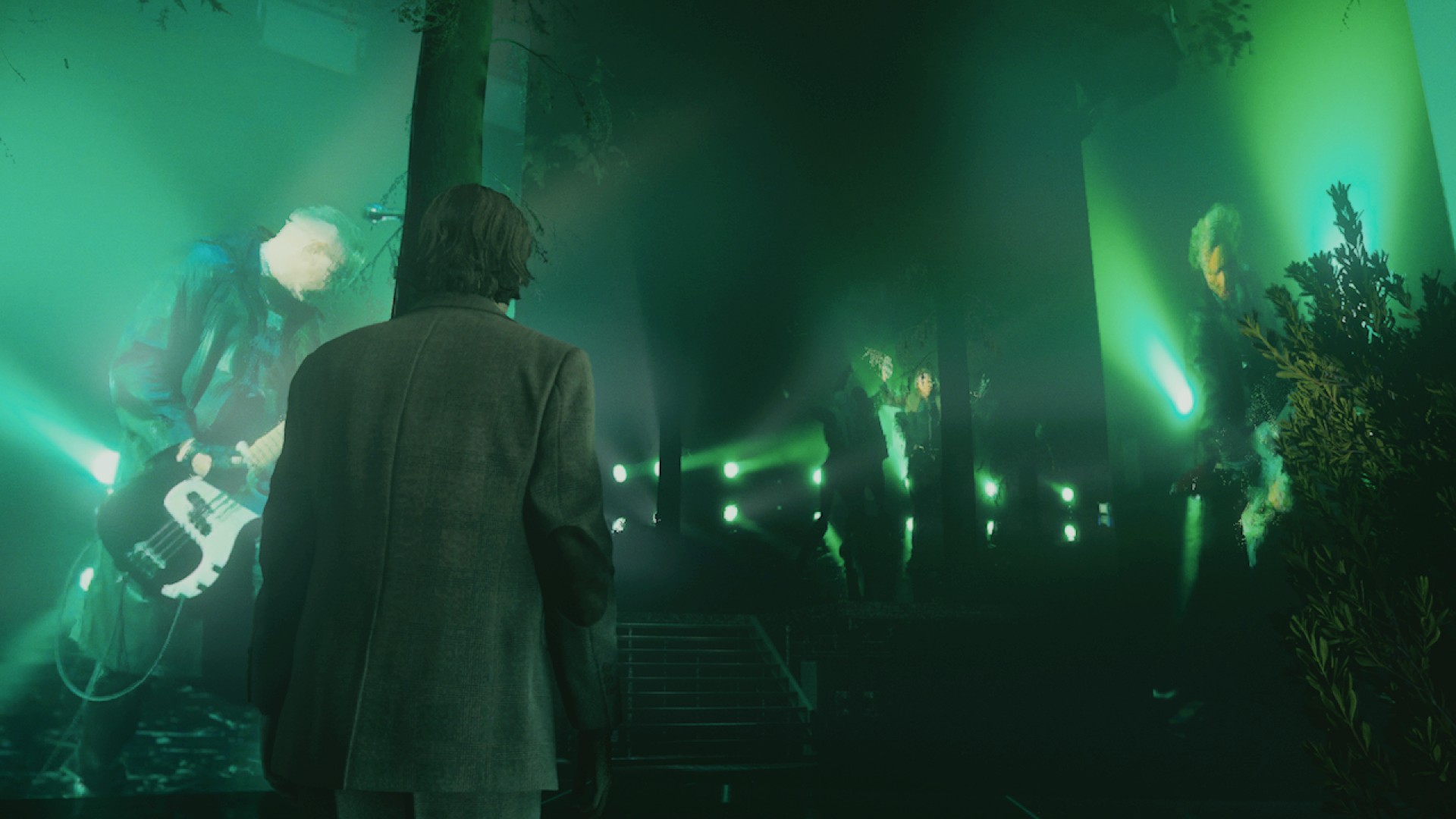
A Viking power metal opera is in full force. I stoop to pick up a pistol and flashlight, heading deeper into what becomes my favorite Alan Wake 2 chapter yet. Faded setpieces litter the space, pantomiming the detective noir world of The Dark Place outside. The word "enemies" is marked on the floor in white gaffer tape, right below an arrow pointing behind some bushes. A rock star points the way forward with the headstock of his guitar. I follow obediently.
Alan Wake: The Musical. Those are four words that shouldn't go together, but they do now. Weaving between towering screens in what appears to be an abandoned theater, fragments of a live-action musical interpretation of my character projected across each one, I've never experienced a video game chapter like 'Initiation 4: We Sing'. It's a feat of game direction that puts Remedy Entertainment in an enviable position in the lead-up to wider Game of the Year conversations, showcasing how far the developer is willing to go in the name of innovation – and weirdness.
Role of a lifetime
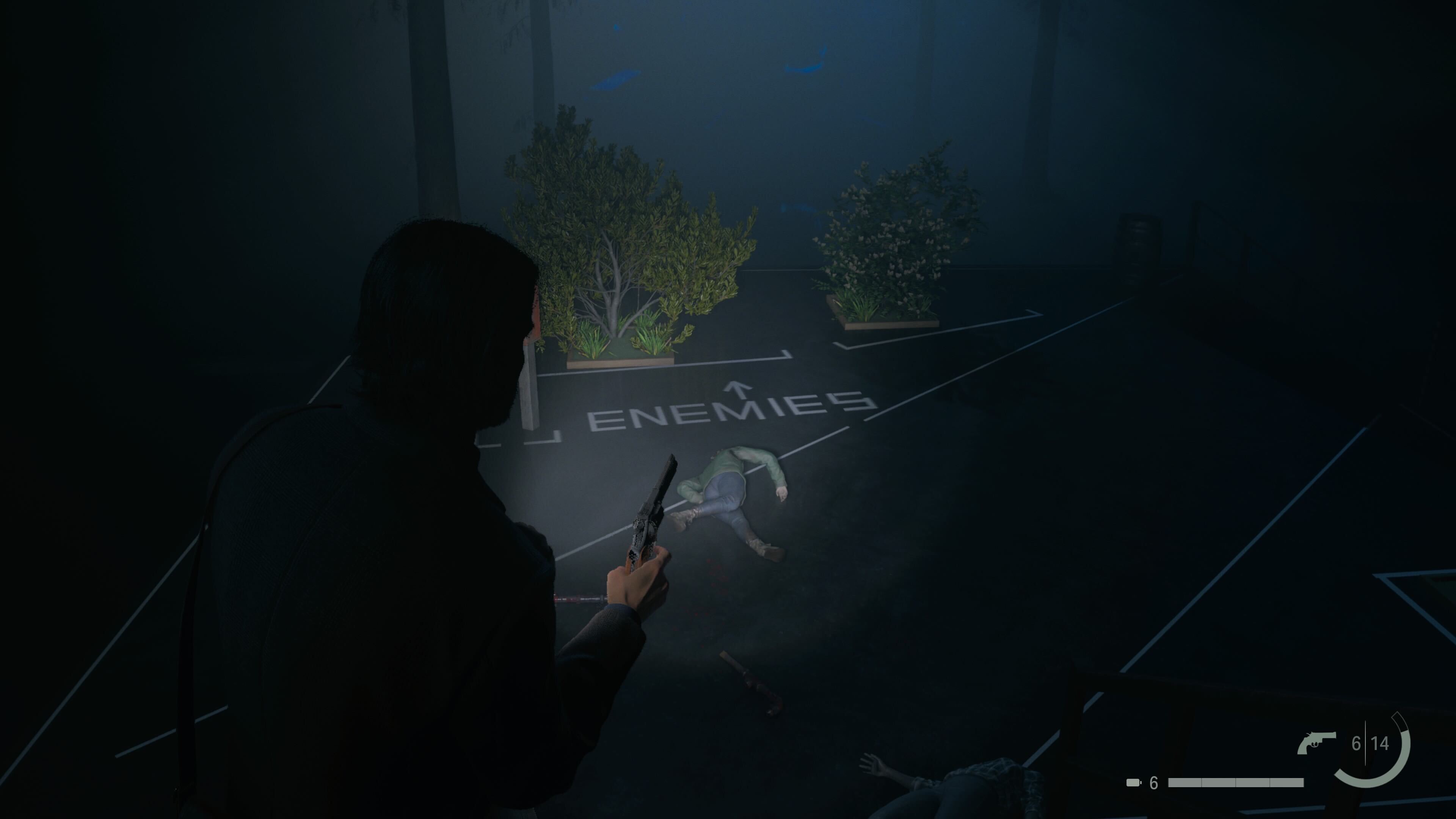
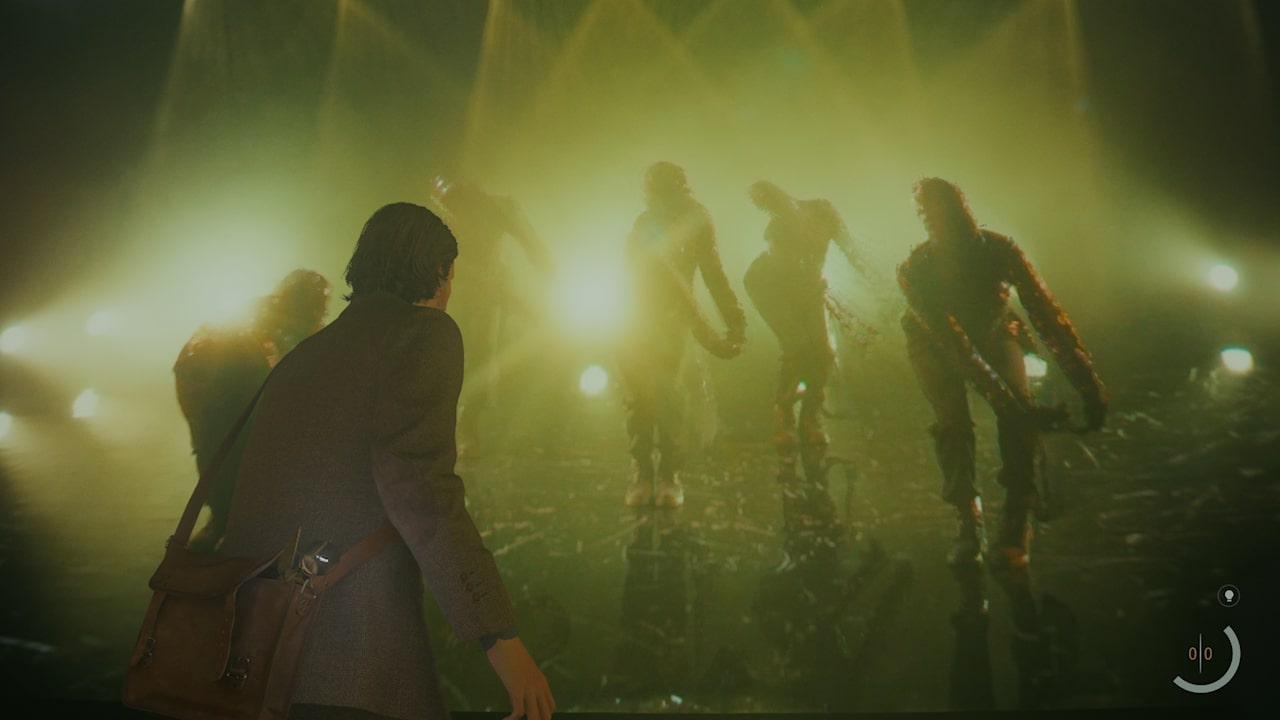
Check out our Alan Wake 2 review to see what all the fuss is about.
Blasting away the shadows to the tune of Alan's life story is an unmatched highlight of the year for me. I love Broadway shows as much as the next ex-drama kid, but I usually find musical episodes of anything else to be truly awful experiences. Consider those words officially eaten, because this entire chapter of Alan Wake 2 is a mind-bending multimedia work of video game art that offers both style and substance.
Kicking off the fourth of Alan's playable chapters, both myself and the character are finally getting into the swing of things. "No more surprises," Alan mutters, before interacting with the TV and getting a pretty big one. The live action components introduced in previous episodes here take a dramatic turn in more ways than one, as Alan becomes a spectator of his own life.
Complete with dance breaks, backup performers, stage lights, and a sweeping rock opera score, the true mastery of 'We Sing' is in how you navigate it. It is not a cutscene, as in the Dragon Age: Inquisition and Saint's Row: Gat Out of Hell singalongs respectively, but a fully interactive gameplay sequence built around a live-action musical.

Traversing the space and exploring at my leisure feels like a uniquely out-of-body experience in a video game. Alan carves out solid black silhouettes against the on-screen projections as I move through them, creating a sprawling yet fluid piece of promenade theatre. The lyrics of a song, Herald of Darkness, guide me through the vignettes, recounting the events of the first Alan Wake game and offering a glimpse into the character's future.
"Show me the champion of light, I'll show you the Herald of Darkness," begins the chorus as I pick up Alan's newly-acquired flare gun, shooting it straight into a horde of shadowy foes. A crushing guitar solo amps me up as more enemies dart into my path on-cue. The developer has been known to leverage mixed media in its work before, and of course heavy metal goes with shooter games like fine wine. But this experience is completely new territory in all regards, even by Remedy's already daring, cross-media standards.
Torchbearer
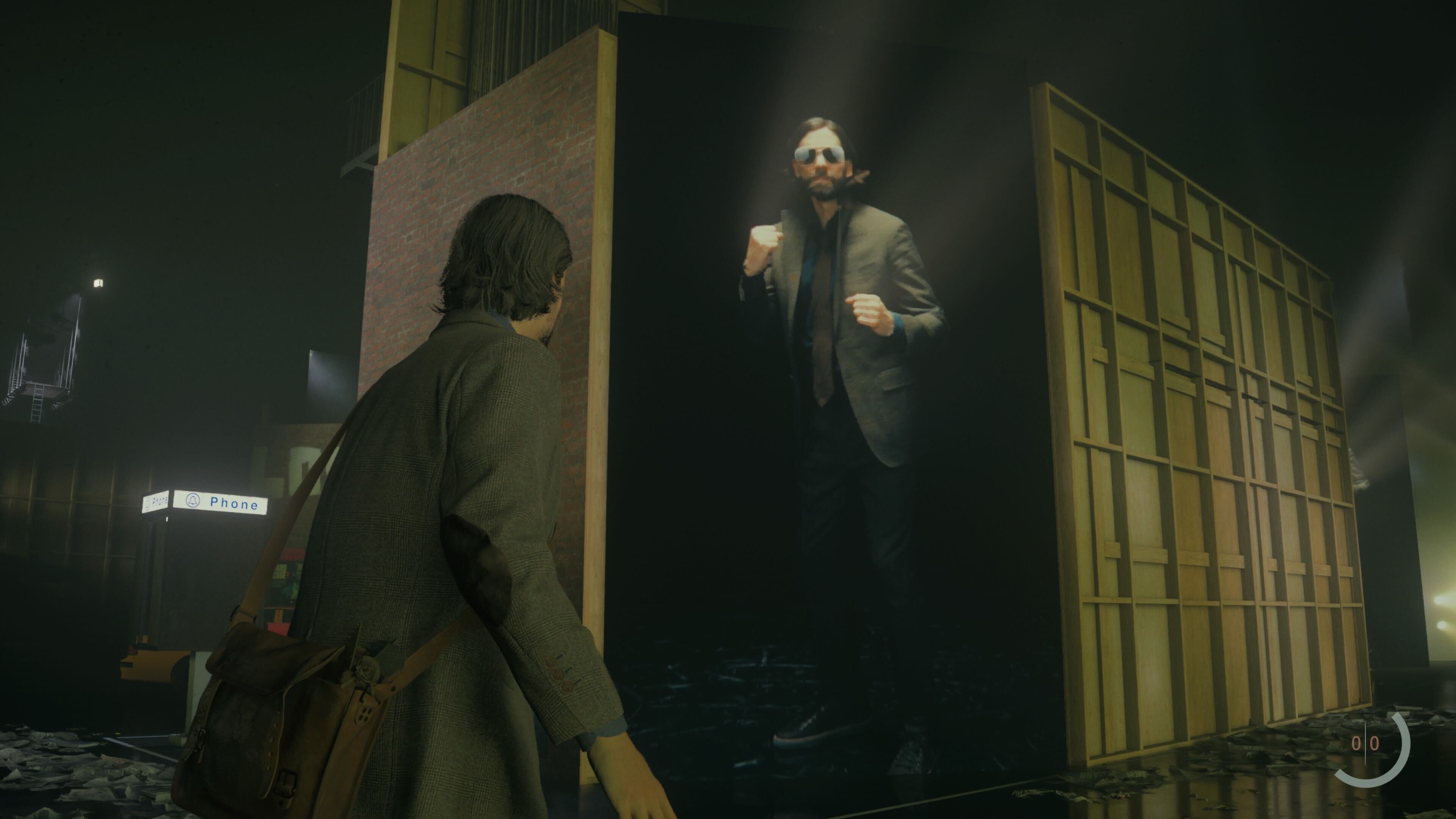
Remedy put its own spin on the dreaded "random musical episode" trope...and I'm baffled by how well it works.
Putting a playable musical segment in the middle of a survival horror game is an ambitious venture. It could have gone really, really, cataclysmically wrong for Remedy and Alan Wake 2, but luckily, the developer is well-versed in testing the boundaries of strangeness in its video games.
2019's Alan Wake sister title Control had its fair share of kookiness. There's the threat of an evil refrigerator that kills you when you stop looking at it, a chase sequence featuring a possessed rubber duck leading you through a laboratory, and the general temporal weirdness of the Alan Wake universe to contend with. Playing a Remedy game can sometimes feel like doing an improv scene with a very strange, very creative individual. All you can really do in the face of oddity is shrug and say, "yes, and?"
Alan Wake 2 takes these oddities and amps them up to 100. A chaotic musical theater number sounds abrupt in the context of a horror game, but combined with the studio's track record-proven interest in live-action, it's just one way Remedy puts its recognizable stamp on things. It pushes the limits of what's been done before, both in horror games and in the studio's past work.
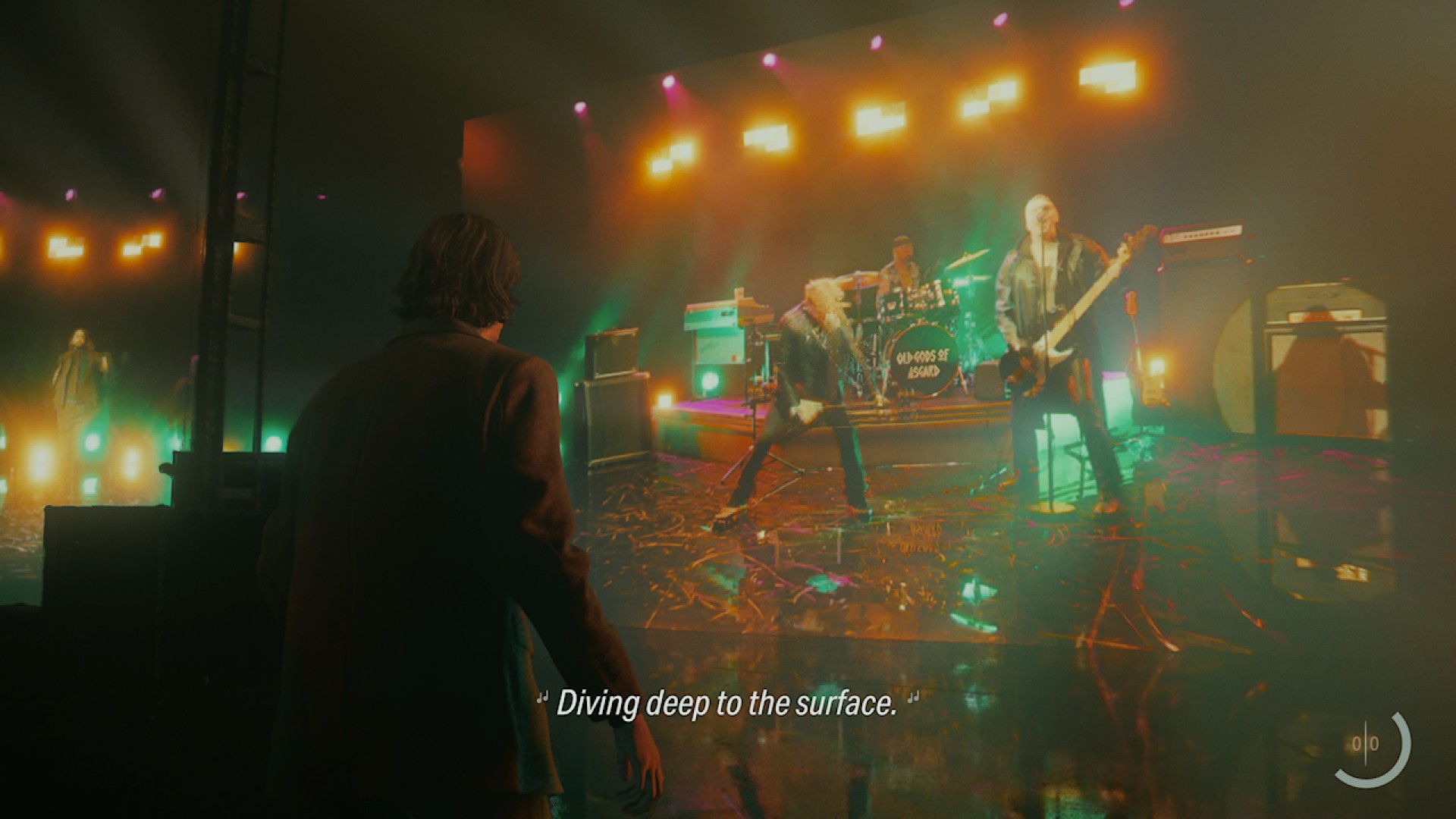
One way this is done is by bringing back aging rock stars Odin and Tor Anderson, as well as their band Old Gods of Asgard, whose music has been peppered throughout the Alan Wake universe. Just having another song or reference would have been cool enough for returning fans. Their bit parts have been transformed into a thriving centerpiece, though, and the result is an interactive piece of digital theater.
Remedy put its own spin on the dreaded "random musical episode" trope by splicing it into a video game, and I'm baffled by how well it works. We know anything is possible in the Dark Place when the writer sets the score, and Remedy takes its own advice to that end. 'We Sing' is both a palate cleanser and a showstopper, a moment of glorious confusion that somehow feels more straightforward than the rest of the game. It's utterly ridiculous, yes. And?
If you're still in the spooky spirit, check out the best horror games to pick up next.







